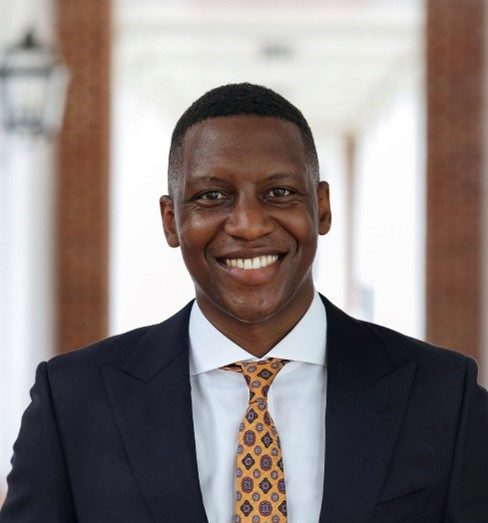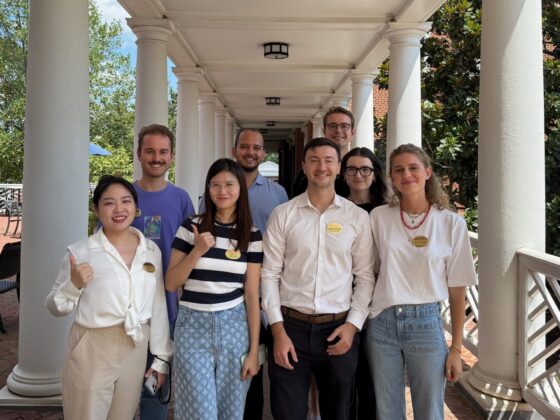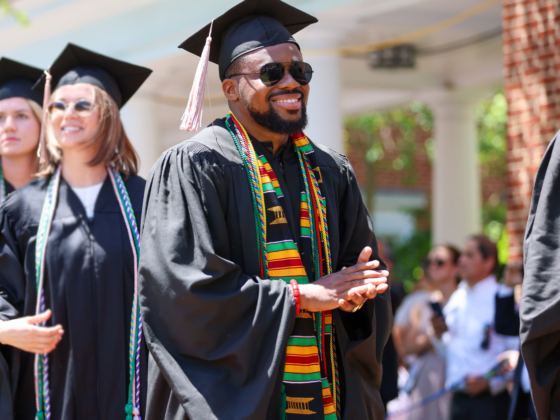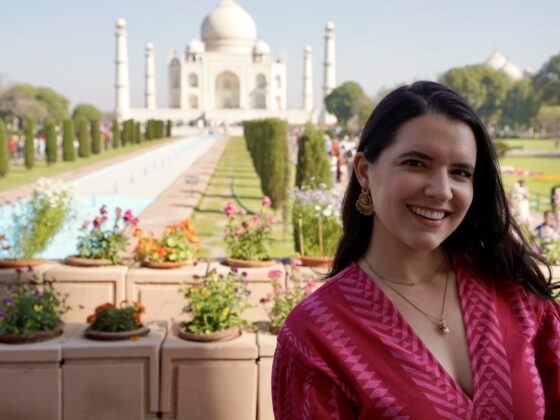Raised in Southern Africa, Dexter Moyo (Class of 2024) studied accounting and auditing at the University of South Africa. Before applying to Darden, Moyo worked as an accountant with the Big 4, and, last year before joining Darden, at Equinor. Through these companies, Moyo was able to gain extensive experience in auditing, financial reporting, advisory and controls, and other financial services. For more information about Dexter Moyo, check out his LinkedIn. Moyo discussed his First Year Darden experience with the Center for Global Initiatives.
Dexter, tell us about yourself. What is your background?
I was born and raised in Zimbabwe, with two older sisters and a younger brother. Most of my childhood, from age 8 till about 17, was spent in boarding school. My experiences at that boarding school were key in helping me develop my independent mindset and learn to do things my way with a regimented order/schedule. I like to pre-plan things and do things to prepare for the week ahead. I will prepare what I’ll wear and eat and set everything up beforehand. This all came from my years in boarding school.
While I was in boarding school, I was able to meet up with an uncle, who worked in financial services. He inspired my dream of working in finance. At the time, I wasn’t too sure what my specialty would be (finance, accounting, or economics) but I knew I wanted to go down the finance path. As I was growing up, Zimbabwe was going through an economic crisis, which began around 1999 and peaked in 2008 with record-breaking hyperinflation. My interest in financial services heightened as I lived through the peak of the economic crisis. It was a very uncertain time to grow up. Parents were worried about jobs and salaries as industries and companies were closing. It ignited a passion in me, and I wanted to learn how the economy functioned and what was causing investors to pull their resources out of the country. Some of these investors no longer wanted to do business in Zimbabwe and I wanted to know why.
I was fortunate to have teachers and mentors along the way who helped and assisted my studies. Several socioeconomic shocks became a regular feature, which impacted the education and learning experience of most Zimbabwean students. There were many disturbances around me, and I was lucky enough to have a strong support structure. At the time, I didn’t understand the importance and the psychological effect these events could have. Only now, when I look back, do I realize how important it was to have encouraging people around me. It made me more resilient.
I finished high school and things were still a bit tough in Zimbabwe. Due to strikes and unrest, I decided against attending the University in Zimbabwe. Instead, I moved to South Africa where I attended the University of South Africa and got an accounting degree. After my time at the university, I looked into getting a job in Zimbabwe, but the unemployment rate was high (it was over 50% at the time). After qualifying as a Chartered Accountant (CPA equivalent), I instead turned my attention abroad and was able to secure a job in London.
What inspired you to do your MBA in the United States? What attracted you to Darden, specifically?
As time went by, I realized there was a gap in my accounting/CPA knowledge and what I wanted to do was investment banking. I did my research and realized that there were more opportunities to do work in investment banking in the U.S., as compared to the U.K. There were more MBA schools and investment banking seemed to be much bigger and broader in New York. I desired to step up my education through an MBA and the US felt like the best place to do it. The U.S. had the best schools and Darden is well known for its rigorous academic program, and the case method is something out of this world.
I love the case method. It’s not just technical, but it teaches you leadership, how to be team-led, and how to represent yourself in the business world. That’s why I chose Darden. That’s what motivated me. I considered schools in the U.K., but my decision became clear as I looked at employment reports and campus success stories. U.S. schools, in particular Darden, had great career outcomes. Darden also has an amazing alumni pipeline to draw on. Though Darden is not a finance school, the alumni network is strong. There is a strong presence of Darden alumni in many of the major companies around the world.
How has coming to Darden expanded your global perspective?
I have always regarded myself as a global citizen, having lived on two different continents before coming to Darden. I was fortunate to have traveled throughout Europe and had many global experiences from my time abroad. Coming to Darden and meeting people from different parts of the world felt different. Being in one class and having close relationships with these people allows you to sort of get a taste and feel for the different parts of the world. There is always something to learn about different cultures and it’s given me the desire to travel the world more, especially North and South America. This is my first time in North America, and I want to see more of what North America has to offer. To this end, I have enrolled in the Costa Rica Darden Worldwide Course.
What has been the most unexpected thing you’ve learned at Darden so far?
First, the classroom experience. There is so much leadership that comes with the classroom experience. I come with a strong set of technical skills from an accounting and finance background, but I realize that this does not equate to being a good leader, which is what the class requires you to be. The classroom experience has been amazing. Also, I love being in a space with intelligent professionals. Everyone I meet is smart in a different, unique way. People from diverse backgrounds, industries, cultures, and religions are constantly being brought together.
Second, the access to the network that Darden provides is incredible. I have successfully recruited for my summer internship already, but being able to attend different company events, and meet different business leaders from different industries and companies is something so invaluable, that you really can’t put a price on it.
Finally, the unity and togetherness of section A were a pleasant surprise. Section A is very united, and people socialize with each other regularly. I don’t have many family members or friends in the U.S. Being able to meet different people and build a sort of family within the class has been amazing. And yes, for those readers wondering . . .section A is the best.
What advice do you have for students at Darden? Specifically, what advice do you have for international students?
Being accepted to Darden is a privilege. It’s a rigorous process to even get here. So, when you get accepted, just believe in yourself no matter what your experience or where you are from. Whatever you bring (whether it be cultural, academic, or personal) is invaluable for the class. Just be yourself and believe you are the best. You belong here. Also, don’t worry about the cases. Look to enjoy them and have fun. I don’t remember my first case, but I remember being excited but also intimidated and that it might be beyond me. However, using cases to learn about marketing, leadership, organization, and decision analysis is amazing. Focus on that!





